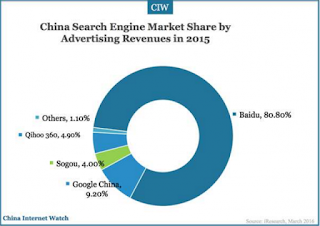China has an impressive history of consuming. Yet in recent times, you can not pick up a newspaper, go online or watch TV without hearing continual moaning about the country's slowing economic growth and the need for "rebalancing". The reality is that Chinese consumers will continue to increase in richness and complexity. And if you are worried about economic importance of the country is down, you are probably looking at his performance in the wrong direction.
Purchasing abroad
"Daiguo," which means "the name" in Mandarin, is a retail company managed by young immigrants or foreign students who purchase products in a foreign country and sell them to consumers at home in China.Daigou the trade became popular in Europe, where enterprising individuals ship luxury goods such as Gucci handbags in China. But in Australia, trade involved mostly everyday items such as food, cosmetics, wine and clothing. The report, a company of 40,000 "daiguo" are doing about Australia, and mall is Sydney, who has a Chinese community growing and has many direct flights to China, making it easier for carry goods.
One of them is Rika Wenjing, 24, graduated in accounting from Wuhan, which sells baby food, supplements and skin lotions to customers in China. She told the BBC she worked part time in the last two years as "daiguo" and has built a network of approximately 300 customers who are willing to pay high prices for Australian trustworthy products .
"At first, I just had my friends and my aunt to buy baby formula or unique brands from Australia, like Ugg boots. Then I wanted to build a platform to show more products for them" Rika told the BBC. "I do not just want to make money, I want to deliver goods to my friends." Although the Chinese government tightened regulations on cross-border online shopping early this year, the trade "daiguo" continue, especially in the baby milk formula, known as "white gold". Following the 2008 melanin contamination in dairy products that killed six children and affected nearly 300,000 in China, imported milk has become a popular product.
< Read more: Do not worry http://en.yibada.com/articles/169658/20161025/growing-daiguo-businesses-allow-chinese-consumers-shop-australia.htm#ixzz4OBMNik6b
% of consumer spending GDP
As in most of the developing economies of Asia, the rapid growth of China was founded on savings, investment and exports. You get to save your people, to move to cities, work in factories, and do things. This is sold and the money is brought home for investment. In addition, you get foreign investment as well. This process has enabled China to develop its infrastructure largely with his own money. This, incidentally, is not the norm. Developing economies generally borrow foreign and such default-for, US states including Mississippi and Florida were chronic defaulting on foreign debt since they were first developed.
http://www.mckinsey.com/business-functions/strategy-and-corporate-finance/our-insights/why-chinas-consumers-will-continue-to-surprise-the-world
< One of the drawbacks of this first-investment approach is that it makes the consumer look small and often as it shrinks. Chinese consumption has declined by about 51 percent of gross domestic product in 1985 to 43 percent in 1995, 38 percent in 2005 and 34 percent in 2013. By comparison, consumption is about 61 percent Japan and about 68 percent in the United States. In fact, small and reduce China's consumption percentage is one reason why people keep talking about "rebalancing" -the need for the economy to be driven more by consumer spending and investment and exports.


